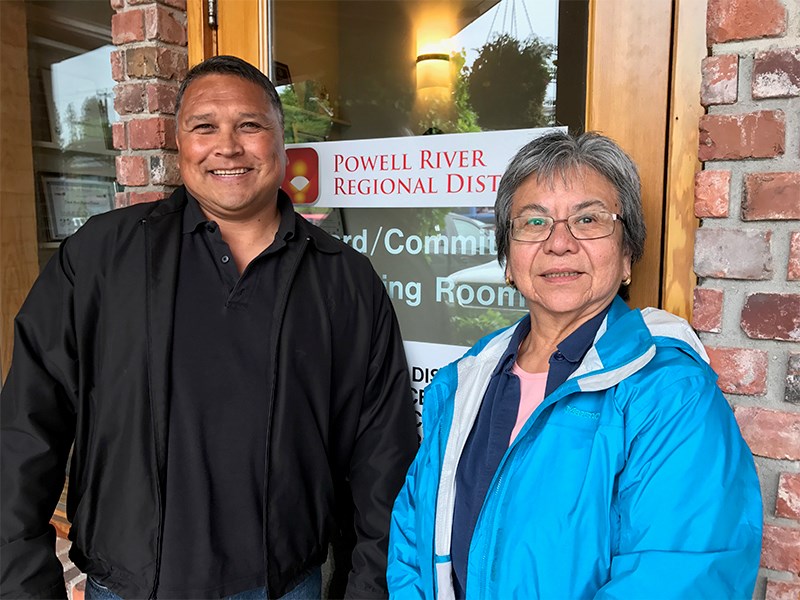Powell River Regional District’s committee of the whole is recommending its board supports beginning the process of formally changing the local government’s name.
Board chair Patrick Brabazon brought the name change proposal forward at a meeting on Thursday, June 8. If the board supports the name change, the local government would be known as qathet (pronounced KA’thet) Regional District, using the traditional Tla’amin word meaning “people working together.”
Brabazon said the idea seemed appropriate with the regional district’s 50th anniversary, Tla’amin Nation’s first year of self-governance and Canada’s 150th birthday all taking place this year.
“With our half century approaching and a new Tla’amin relationship, this is the moment for a bold statement,” said Brabazon.
Brabazon stated in his renaming proposal that using Powell River to describe the regional district has been fraught with problems.
“The name Powell River fails as an identifier of not only where were are, but who we are,” he stated. “The focus of the matter is that we have no true identity or distinction.”
According to Brabazon, using Powell River does not provide an accurate geographical description of all areas within the regional district’s jurisdiction, an area of approximately 5,000 square kilometres stretching from Jervis Inlet in the south to Toba Inlet in the north, and incorporating Lasqueti and Texada islands. Powell River is synonymous with the paper mill and the only municipality within the regional district, he stated.
Brabazon noted that the regional district has been passed over for federal grants in the past because City of Powell River had already been granted money from a particular fund, even though each government should have been considered separately. This confusion is not limited to politicians 4,000 kilometres away in Ottawa, either, he stated.
From time to time, provincial ministries have made comments that showed their confusion between Powell River Regional District and the city, he stated.
“Such remarks, given casually, merely confirm what was already perceived: Powell River is the municipality,” stated Brabazon.
Tla’amin Nation elder Betty Wilson and hegus Clint Williams appeared as delegation at the recent committee meeting to speak to the potential name change.
“I really appreciate this step,” Williams told the committee. “It’s monumental in the reconciliation that is trying to occur across Canada these days.”
Williams said he was pleased to have Brabazon approach him with a request to bring forward a Tla’amin word for the new name.
“It’s an honour to have the Tla’amin name acknowledged in the traditional territory the regional district represents,” Williams told the committee. “The language is something that is very important to this area and we want to celebrate it, but at the same time we’re having trouble recording our language in this day and age.”
Wilson said she and members of an elders’ group who are working on the Tla’amin dictionary decided to put the new name forward.
“It’s such an appropriate word for this group,” she said.
Once the regional district board passes the motion to start the formal process it will submit a proposal to the provincial government for approval.
Municipal director Russell Brewer said he supports the name change as it can serve as a catalyst for further community discussion on what reconciliation with Canada’s aboriginal people means.
“It’s an important step to take,” said Brewer. “It’s one piece of a larger reconciliation discussion that’s consistent with some of the calls to action outlined in the truth and reconciliation report.”
Brabazon said he hopes the new name is in place by the end of the year.
After the meeting, Williams said the change could be meaningful within the current discussions on reconciliation.
“There’s the photo op and then it dies,” he said. “With this, the name carries on and it’s a more permanent thing. It’s a meaningful step and we’re glad to be a part of it.”



